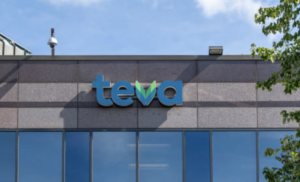Teva Pharmaceuticals Agrees to $450M False Claims Act Settlement for Kickback Allegations and Price Fixing

Last week the DOJ announced that Teva Pharmaceuticals USA Inc. (Teva USA) and Teva Neuroscience Inc. have agreed to pay $450 million to resolve allegations that they violated the Anti-Kickback Statute (AKS) and the False Claims Act (FCA). The settlement addresses two distinct schemes related to illegal payments and price fixing, representing one of the largest settlements of its kind. This is a step forward for healthcare reform making an example of Teva, the largest generic drug manufacturer in the United States.
This also comes after another settlement announced with DOJ on the same day where Teva agrees to pay $25 million for conspiring to fix prices and allocate markets for two generic drugs. The $25 million is part of the broader $450 million-settlement.
Allegations
The first kickback violation states that Teva allegedly conspired to cover the Medicare copayments of patients using its multiple sclerosis drug Copaxone. The US government claims that between 2006 and 2017, Teva worked with a specialty pharmacy and two third-party foundations to fund copays specifically for Medicare patients.
The Justice Department alleged that Teva donated millions to these foundations, knowing the funds would be used to pay for Copaxone prescriptions—allowing Teva to raise Copaxone’s price repeatedly while shielding patients from the financial impact. By manipulating the system, Teva caused the submission of false claims to Medicare, leading to significant financial harm.
The second kickback violation (and part of the $25 million settlement) was for claims that Teva conspired with other generic drug manufacturers to fix prices for several widely used medications, including pravastatin (a cholesterol-lowering drug), clotrimazole, and tobramycin. Last month, another generic pharmaceutical company, Glenmark Pharmaceuticals Inc., USA, also settled allegations of price-fixing the drug pravastatin as well.
Furthermore, Teva previously entered a deferred prosecution agreement with the Justice Department’s Antitrust Division for related criminal charges and paid a $225 million criminal penalty.
Principal Deputy Assistant Attorney General Brian M. Boynton of the Department of Justice emphasized that kickback schemes like this distort competition and undermine physician and patient decision-making. He stated, “The Justice Department is committed to pursuing those who engage in kickback violations, including drug manufacturers, to ensure that federal health care programs continue to serve the interests of taxpayers and program beneficiaries.”
U.S. Attorney Jacqueline Romero for the Eastern District of Pennsylvania reiterated the damage that these practices cause to federal health programs like Medicare and TRICARE, which serve vulnerable populations including seniors and military personnel. “Kickback arrangements by pharmaceutical companies escalate the costs for critical drugs used by our citizens and federal healthcare programs,” said Romero.
Moreover, there is a broader pattern of enforcement actions targeting pharmaceutical companies that exploit charitable foundations to disguise kickbacks. Since 2017, the government has collected over $1 billion from companies involved in similar schemes, making today’s settlement with Teva one of the largest.
Teva’s price-fixing resolution also adds to a growing number of settlements addressing antitrust violations in the generic drug market. The Department of Justice has settled seven other cases related to price fixing in this sector, with recoveries exceeding $500 million.
As Assistant Inspector General for Investigations Adam Globerman of the Department of Health and Human Services noted, “This type of conduct is unacceptable, and HHS-OIG remains committed to thoroughly pursuing allegations of price fixing and kickbacks that put the Medicare program at risk.”
Teva’s $450 million settlement represents the kind of steep consequences that await companies engaging in fraud. It does more than holding pharmaceutical companies accountable—it protects public health programs, patients, and taxpayers too.
If you have knowledge of healthcare & pharmaceutical fraud or suspected violations of the Anti-Kickback Statute or Stark Law, you can help bring justice to the forefront. Please don’t hesitate to contact our experienced whistleblower team for a free and confidential consultation.